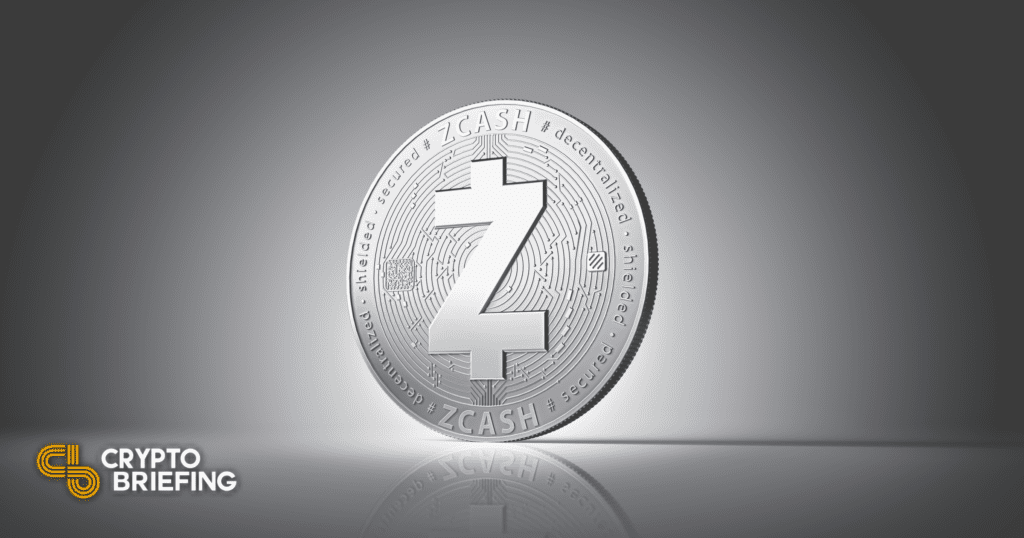
Shutterstock cover by Wit Olszewski
Privacy Coin Zcash Weighing Proof-of-Stake Move
It looks like Zcash could be planning to move to a Proof-of-Stake consensus mechanism in place of its current Proof-of-Work algorithm.
Zcash is considering moving away from the energy-intensive Proof-of-Work consensus algorithm to the lighter, faster, and more eco-friendly Proof-of-Stake, Zooko Wilcox told Forbes.
Zcash Founder Says Proof-of-Stake is Proven
Zcash may be ditching Proof-of-Work in favor of Proof-of-Stake.
The plan to change the privacy coin’s consensus algorithm comes more than two years after user rebekah93 first proposed the move in a Zcash Improvement Proposal (ZIP) to the community.
Proof-of-Stake is a mechanism used to secure blockchains. Unlike Proof-of-Work blockchains like Bitcoin, which rely on an energy-intensive mining process, Proof-of-Stake allows users to secure the network by staking crypto tokens rather than providing computational power. In Proof-of-Stake blockchains, validators are randomly selected to add new blocks to the chain instead of having miners compete to find the block’s hash fastest. Ethereum is planning a merge to Proof-of-Stake as part of its Ethereum 2.0 upgrade, and most newer blockchains that have launched in recent years use Proof-of-Stake over Proof-of-Work.
According to founder Zooko Wilcox, Zcash is starting to think about the potential transaction. He told Forbes that the consensus algorithm is now “proven” and has already been successfully implemented in a number of cryptocurrencies, including Cardano, Cosmos, Algorand, and Tezos.
While Wilcox acknowledged the environmental concerns surrounding Proof-of-Work, his primary motivations for the shift have more to do with the greater—to his belief—security and performance benefits Proof-of-Stake offers. He said:
“I think Proof-of-Work has some security flaws, as has been demonstrated by the 51% attacks that have occurred (when a miner controls a majority of computing power on the network and can steal tokens). And I think Proof-of-Stake can provide a much more powerful kind of security and at a lower cost.”
His views on the security proposition of the Proof-of-Stake consensus mechanism are in line with Ethereum’s founder Vitalik Buterin. Both argue that 51% attacks are much easier to recover from in Proof-of-Stake protocols because bad actors can quickly be identified, and the community can coordinate to slash the attacker’s funds in a “minority user-activated soft fork.” The same process requires a hard fork and is significantly harder to execute in Proof-of-Work-based systems.
Since the Forbes interview, Wilcox has published a blog post via Electric Coin Company, the company that launched Zcash, titled “Should Zcash switch from Proof-of-Work to Proof of Stake?” In it, Wilcox presents several arguments of the supposed merits of the move, including improvements in security, energy efficiency, and decentralization.
